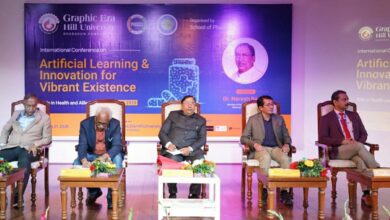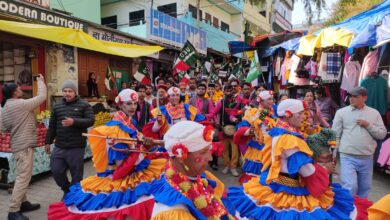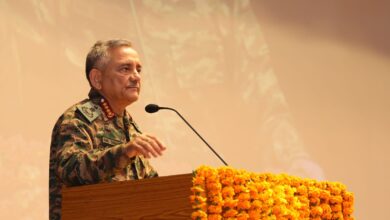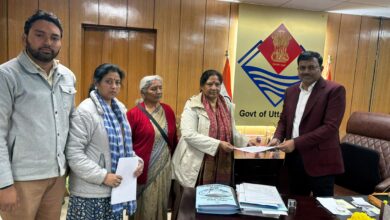On World Disability Day, Irshad represents the agony of a common man – a personal story.
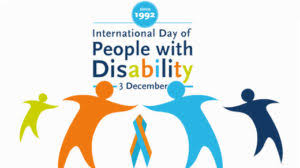
On World Disability Day, Irshad represents the agony of a common man – a personal story.
Shahab Naqvi
Dehradun , Dec 3
As humans we treasure our innate sensibilities to help others. It is this unique and distinct character of ours which makes us different from other living creatures. We have a conscious ability to choose a humane response for suffering around us, one which leads to growth and freedom. We might often have experienced such a feeling when we see others in a state of misery or sadness – for instance, that without inhibitions, we wish to extend help. When we begin to experience such a feeling of empathy in our everyday lives a little more often, that we wish to break our boundaries of limitedness, we come together as ‘one’ to engage in ‘social work’. And, that’s because we believe in life and liberty.
We form groups, meet like-minded people and sometimes choose to work in an organized form of social work which appears to be growing as never before and rather becoming more attractive in a sense. We often witness a growing trend that charitable causes are inclined towards a formal occupation. In a way it’s neat. However, it is this space between human sensibilities and a formal occupation to serve, and a wide spectrum of stimuli withing those two, that we have to make decisions on how it could impact one’s life; a promise to fulfil or an obligation to serve.
Although the reality sometimes is a little more complex than we realise or can fathom. Having a stable career in IT services for about a decade and then changing over to social development space was a choice. It was an attempt to find balance, a harmonious coexistence with nature and a more direct association with fellow human beings. The decision was pensive and was not based on any binary. This urge for harmony with nature wasn’t about being more relaxed in sphere of work but to obtain and raise our intellect to enquire, improvise, construct and build a more humane drive in conceiving life around us. I have completed ten years involved with grassroots developmental work.
A fraction of my professional tenure in social developmental space spun with a corporation. It was way too obligatory to sustain reason. Besides an urge, working with a corporation especially in social space was in fact a trigger for me to be closer to reality. There’s a difference which I would like to point out here. All of us working together now are friends, ally. There is no clause for compulsive obedience. Our objectives are simple, in solidarity with the common folk and those of us who need help to overcome difficult life situations like all of us do. There is no classification of people as different on any ground whatsoever. We have learnt to deal with it together and believe in a more compassionate social standing.
The theme for World Disability Day 2024 is “Amplifying the Leadership of Persons with Disabilities for an Inclusive and Sustainable Future.” This theme highlights the importance of disabled individuals in shaping a better and more sustainable world. This is a story of Irshad, his struggle with his disability to strive for a sustainable living.
I met Irshad about four years ago (2020). It was during a community meeting where people interested to learn carpentry and set up their shops, enterprises, etc. participated. The meeting was organized in the Sahaspur block office of Dehradun district, Uttarakhand in which approximately thirty people participated. Irshad was a professional carpenter already and we met for the first time. He spoke in a much assertive manner which didn’t sound very welcoming for someone having a conversation during a first meeting. We later met for a few times for work and I noticed that he was forceful in his communication. One of those days I felt a little confronted and couldn’t resist asking him why he spoke in a manner which sounded boorish. His immediate response was formidable.He wept and couldn’t look into my eyes. For a long time, he wasn’t able to raise an income to fend for his family of five. The youngest was a child with disabilities.

We later met a few times and I was able to organize work for him through our institutional resources. It helped him raise an income from getting domestic furniture repair and maintenance work. In addition, we allocated some woodcraft work to him with an aim that he might later feel encouraged to setup a woodcraft or a carpentry unit and also begin to understand the economics of it. In about two-years’ time, some amount of peace in life was restored. He had already gotten recognition for his work and started mentioning his aspiration to setup his carpentry shop.

By this time, we were already friends and often met to plan work more systematically. I realized that while he had been working as a carpenter he had been in debts because he wasn’t able to make accurate financial decisions. There were systemic issues too because of which there was insufficiency of work which caused serious dent in raising a continuous source of income. This is not a totally unfamiliar situation in unorganized labour market. It is rather vastly prevalent.
The above picture is from a time when Irshad was registering with us for support that he was requiring. We generally assist communities to setup their enterprises, projecting commerce and how available resource and skill sets could be mapped, and handhold operations till the time such enterprises become self-sustainable. This is a very rigorous work considering the nature of people we work with, lack of resources, inaccessibility to modern technological means, capital, etc. We assess parameters of sustainability not from purely monetary point of view but also (in fact mostly) from various human aspects which reflect diversity in social contexts, especially those which are non-dominant and at times, almost evicted in prominent urban compilations and definitions of social work.
This reminds me of Kafka that ‘all language is but a poor translation’. Development is not about compensation for unspeakable hardships. It is to not having those experiences or at least reducing risk element and trauma of displacement. Displacement here is used in sociological sense, close to disenfranchisement but not exactly that. Sustainability for us is a basis on a wide range of issues to a wholesome understanding of our times and an equally relevant praxis.
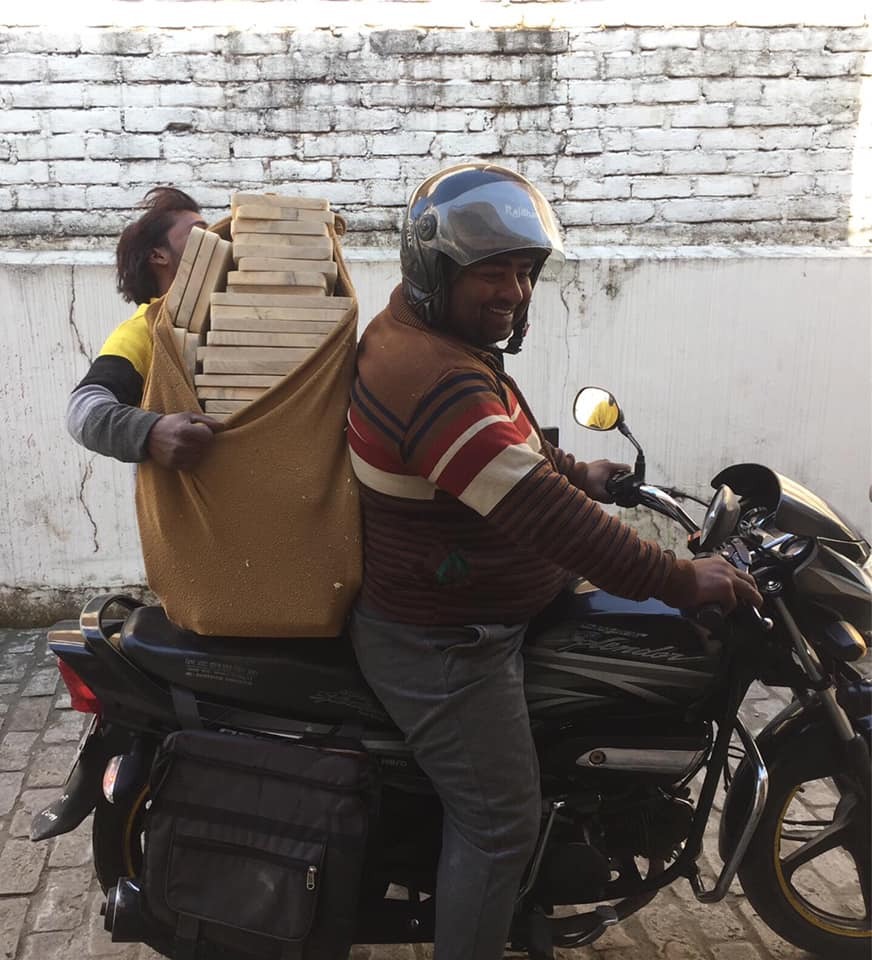
Things changed considerably in two years’ time. We did a lot of research together on how could we diversify our product portfolio and involved Irshad for making superior quality of wooden chopping boards. This might sound really simple but we defined a process for its making which required minimum two months to produce such boards for a simple reason that there was no use of chemicals during any stage of production. We started to talk about consumer choices, ecological consciousness and creating more awareness about the product amongst our product buyers. A full structure is involved in introducing and deploying a deep sense of standardization of procedures in an unorganized workforce. However, with a modest advent of independence, perceptible change amongst attitudes of communities was forthcoming.
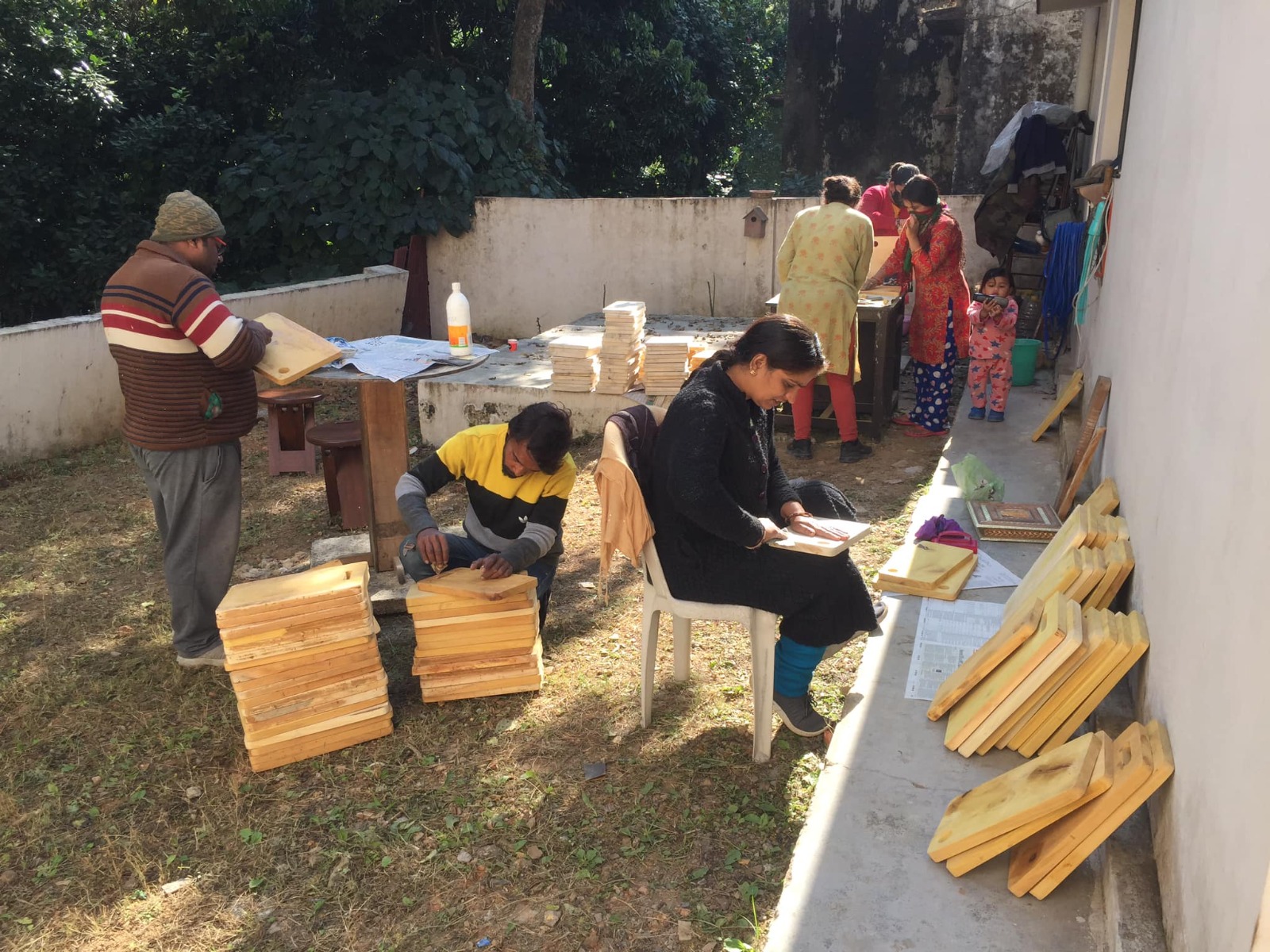
On the contrary, when I began working in organized social work employed with a corporation, I was uninitiated. In fact, myriads of inexperience led me to realise that the most fundamental details in the work I was doing were actually missing. Heavier the weight of standardization, the more statistical evidence was presented, the more it seemed coercive, chaos grew, thoughts were disarrayed and near complacency arrived. To some extent, I was unaffected by what people we were working for as an organization must have been going through in their lives. This is not to discount that reason is a great leveler, but to defer from sheer attractiveness of a developmental program manufactured to sell inadequacy in life and commerce. This, in a form, was an escape for a superior class performatively willing to do everything for the poor. In this scenario, imagine a career in large scale social development employment serving a gigantic corporation, made of all number crunches and tallying daily accounts. When we enter into agreements of various kinds, invariably falter, engage with concessions and payments and depend upon external market shares, it becomes rather difficult to examine that if we are working for sectors which are rather more attractive.
I had chosen social development work as a career for I was all fire for joyous, finding leisure in making small efforts count. Irrespective of the quality of skillset, one mustn’t be consumed in pretense. The other side of it led me to be mindfully observant in this wider context of Pax Americana that I began to trace through various contradictions in our neo-urban society, with a surplus of twists and turns.
On one hand I was witnessing a strong hierarchy and on the other, mortgages, sociological displacements, disenfranchisements and unspeakable trauma and hardships. I began to realise that a sense of superiority is a farce that too shall pass. It was like contamination of our thoughts so much that it could eventually suffocate us. We have to be gentler with our people.
Moving ahead with Irshad’s story. Price and profit are the basic motivating factor for an unorganized economy. Usually, people make a choice of making a product depending upon a variety of factors apart from price, like cost and easy availability of raw material, labour force, if the product could withstand market or supply chain risks.
Irshad finally decided to setup his carpentry shop for which he requested of a loan worth one lakh to be arranged for him through us. In response to his request and in order to reduce financial risks we offered him additional work so that he could raise an income instead of an inherent stress of returning a loan amount. We planned to setup his carpentry shop at a suitable location.

We were truly surprised that it was a fast-track development. This started a series of actions. Our teams coming together, several meetings were held and we together started preparing estimates. We thought to engage more people on the shop while Irshad could pursue business development for his shop and employ more people. We learnt that any product or practice could be adopted provided the returns were sufficiently attractive. We were ready to take risks.

‘Bill Mollison’, an Australian writer said ‘a person of courage today is a person of peace’. These are people who have shown tremendous patience in spite of them suffering. I have had the opportunity to meet and know many such people.
There was a turning point. After three months of the opening of his shop, Irshad, while on his way to the shop on his motorbike, in order to protect a cyclist crossing his way, fell off his bike and hit his head on the sidewalk. He suffered serious head injuries and his skull literally broke in two. He was in a situation of coma for weeks and was surgically operated a few times. This was an extremely painful situation for all of us and I couldn’t see him in that condition.

The family went all broke and in serious debts in too less of a time. Nothing seemed to have been going right including his landlord disapproving his family’s stay at a slightly compromised rental.
We managed to raise funds for his stay in the house for six months so that his immediate need for medical treatment in the nearest hospital wasn’t disrupted for something as basic as a place to stay. It’s been over a year of the accident and for a long time he lost his speech, balance and memory. We kept vising him and his health deteriorated rapidly with him losing weight to almost half. He wasn’t living in the best of circumstances, a person in his situation should have been.
It was a deeply disturbing experience for us all and we were out of touch for about six months, until when his family member called me and informed that Irshad wanted to speak with me. I was in a fest and took the call. It was hard to believe that his speech was recovered although he spoke only in broken words and couldn’t make a sentence. He couldn’t remember my name but hinted me of us making some boards. He was referring to the making of chopping board. He was desperate to meet. He kept on insisting exactly like a little child would do to his guardian or parent. I was both happy for him and also in agony with my inability to comprehend the situation.
He later called a few times wanting to visit me in office on his bike with his family member. I visited him about a month ago instead. He now lives in a shared arrangement with his brother-in-law and their families together. They live in extremely difficult physical and financial situations and with his medical treatment it’s like everyday existence is being invoiced and taxed.
Irshad spoke with me in broken words and was happy to meet. He was ambitious, desperate and wanting to start work. He said “roti kamana bahut mushkil hai” (earning bread is very difficult). His conversation didn’t have any flow and his speech was totally disoriented, not heading anywhere at all. But he was making a lot of effort to build a conversation. He kept repeating that he was trying to make a conversation like he was consciously aware with his present situation. It all sounded to me like he was despondently eager to work, support his family and children going to school.
He spoke about his surgeries but called it trials. He didn’t use the word surgery. He showed me marks on his forehead saying that he would fix it with a wooden piece. His family served me tea while we were talking. We were all grateful that his life was saved and he could speak and walk but I left his home with deep grief.
Ever since, it has been difficult for me to alienate myself from his situation. I would have to start with him all over again. Does it start from a disability certificate?
This is Irshad’s story and not too distinct in terms of distress from most people we work with. Corporeal definition of disability hinges with unfamiliarity with reality. The families we’ve known not only take care of their disabled members, they often go far lengths and extreme poverty to support them, sometimes even nearing starvation themselves. Yes, if we haven’t known this, we are perhaps unfamiliar with what amounts to human vulnerability beyond fulfilment of societal expectations ourselves, despite experts warning us of familial isolation in the developing world and especially within the rural areas.
Poverty generally isn’t the cause of exclusion of disabled family members as assumed, but rather,the poorest families with the least resources are more likely to integrate their disabled family members in family and community events.
In fact, contrary to many development assumptions, families in urban areas are much more likely to isolate disabled family members, for a wide range of reasons but mostly because of negotiating disability differently given different context; whether its lifestyle or to influence developmental projects.
Isolation of people with disabilities in rural communities is lesser due to the agrarian home-based nature of their lifestyle. The scope for being skilled within communities is much higher than while being out-migrated to urban sophisticated settlements. Those who do migrate are separated from their support network and are often less successful economically than they would be in rural areas. Migration is not only typically an unsuccessful path for village migrants, but also deprives villages of skilled members of their community that could help catalyze development within their own towns. This is what any form of disintegration from one’s natural surrounding would do to a person.
Current disability models contain the disabled in a binary opposition, impeding liberation. The discourse must be de-centered from the dominant ethnocentric able-bodied discourse, establishing itself with an individual identity outside of the ‘Other’. The first step would be to withdraw from an ideology that appropriates the methods and legitimacy of science to argue for the superiority of one over the other.
Historically, white Europeans appropriated the inferiority of non-white people whose social and economic status were historically marginalized. The world is witnessing a ‘civilising’ mission, and it’s drawn from depriving the natives. Lately, I had been reading and listening to Francesca P. Albanese, United Nations Special Rapporteur on the Occupied World Territories. In one of her many conversations, she makes an appeal that empathy is the glue that makes us stand united as humanity.
These are not the people with “no past, no culture and no individuality”. Connecting people with disabilities to others in their image is vital to rehabilitation and self-esteem. Resources of the community should be utilized to create sustainable development. The principle of ‘truth of choice’ determines when and how development should be occurring. Passive urbanization offers no solution, socially or economically.
(Shahab Naqvi is a social entrepreneur. Despite his chosen career in service technology following a master’s degree in Computer Science Applications, Shahab’s strong belief in basic human rights and social justice eventually led him these past ten years to an extensive study of sustainable, socially-inclusive interventions for persons who are vulnerable, marginalised also including people with disabilities. In December 2017, he set up the ‘Saahas Foundation Inclusive Resource Centre’, a social enterprise based in Dehradun, Uttarakhand.)
———————————–
References:
- Saahas Foundation Inclusive Resource Centre
- Dilemmas in Agriculture, Gorrepati Narendranath
- Ingstad B. The myth of disability in developing nations.
- Grech S. Disability and Poverty in the Global South.
- Khasnabis C, Motsch KH. Towards Community Based Inclusive Development.
- Ghai A. Rethinking Disability in India. India: Routledge; 2015.
- Adina Faye Karten, Goucher College, USA



